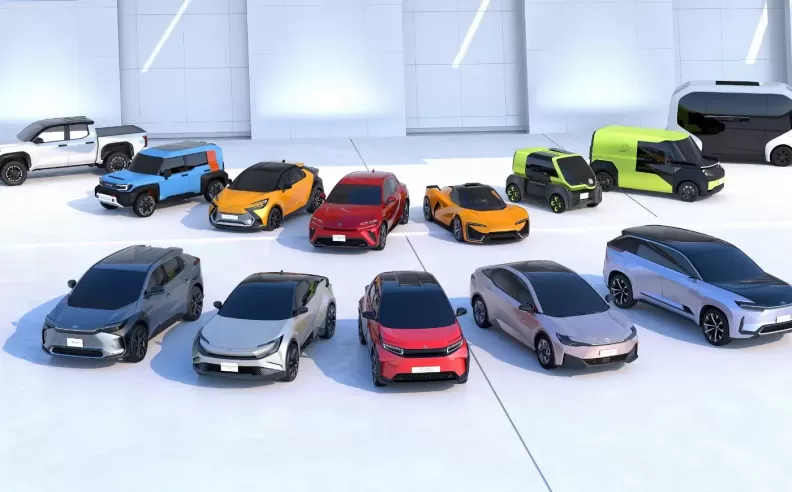
As the world gears up for COP28 in Dubai, UAE, the urgency to address carbon emissions intensifies across governments globally. With experts aiming to cap global warming at 1.5 degrees Celsius, every major sector, including the automotive industry, is shifting gears to reassess the status quo and adapt to collectively meet the challenge of achieving carbon neutrality.
Toyota, in particular, has long recognized its role in this global endeavor. The company’s pursuit of carbon neutrality began over two decades ago with the introduction of the iconic Prius, the world’s first mass-produced Hybrid Electric Vehicle (HEV), in 1997. In 25 years, Toyota sold more than 20 million electrified vehicles , significantly cutting CO2 emissions globally by over 160 million tons. Toyota remains committed to achieving carbon neutrality by 2050 through a multi-pathway approach to crafting sustainable mobility solutions that leave no one behind.
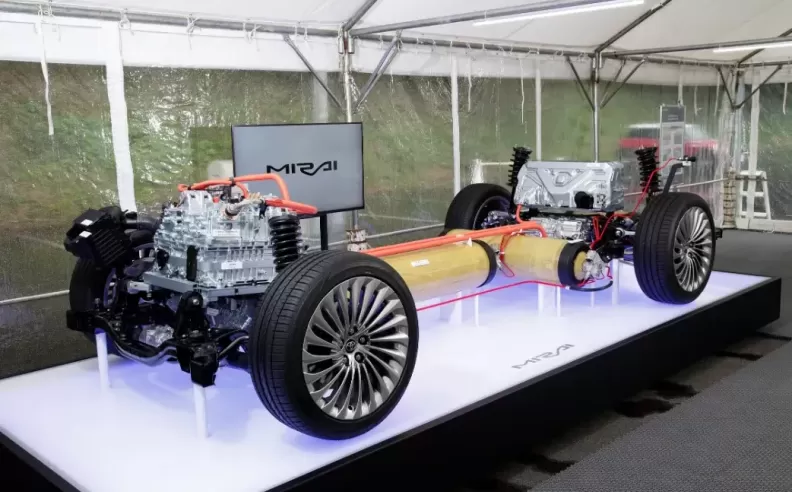
Toyota affirms that there are many paths to carbon neutrality and that just as mobility landscapes are different from country to country, so are the pathways to achieving it. This multi-pathway approach encompasses diverse eco-friendly vehicle technologies to cater to different usage needs, economic circumstances, energy sources, and infrastructure readiness, allowing everyone to immediately start contributing to carbon neutrality. This has led to Toyota developing various powertrain options, including Hybrid Electric Vehicles (HEVs), Plug-in Hybrid Electric Vehicles (PHEVs), Battery Electric Vehicles (BEVs), Fuel Cell Electric Vehicles (FCEVs), Hydrogen Combustion Engines, while also enhancing the efficiency of internal combustion engine (ICE) vehicles and expanding its carbon neutral fuels initiative.
In addition to making all factories carbon neutral by 2035, Toyota’s lineup of eco-friendly vehicles continues to grow. The company aims to develop and offer a full lineup of 30 BEV models by 2030, including passenger and commercial vehicles, with a target of 3.5 million annual global sales within the same timeframe. This includes plans for the shorter run where, in April 2023, the company announced its target to introduce 10 Battery Electric Vehicle (BEV) models by 2026 and 1.5 million electrified vehicle sales. While these seemingly only begin to scratch the surface, the company’s efforts are anticipated to yield a 33% CO2 emissions reduction by 2030 and a 50% reduction by 2035 compared to 2019.
Koji Sato, President and CEO of Toyota Motor Corporation, emphasized Toyota’s mission to ‘produce happiness for all,’ protect the Earth, and enrich people’s lives worldwide. Toyota aims to change ‘Minus(-)’ to ‘Zero’ and create value beyond Zero. Sato highlighted the need to transform the future of the car to ensure its continued relevance and benefit to society.
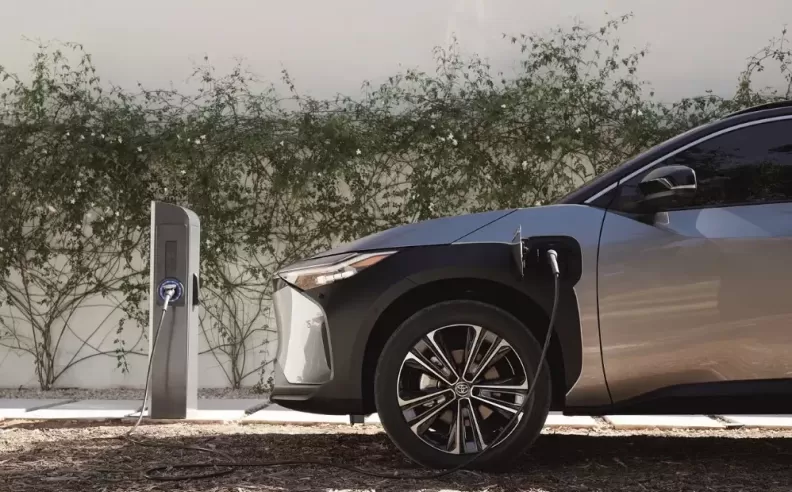
Toyota’s electrification drive marked a significant milestone with its new BEV Factory. Established in May 2023, this specialized organization is envisioned as an “ALL in ONE TEAM” that will not only lead Toyota’s development, production, and business operations, but will also spearhead the company’s advancement in next-gen BEVs. One of the BEV Factory’s primary directives includes the development of an energy and cost-efficient solid-state battery for a 2026 next-gen BEV launch with a 1,000 km range.
The newly established Hydrogen Factory aims to promote business across three key axes: localizing R&D and production in major markets, strengthening alliances with leading partners to provide affordable fuel cells, and competitiveness and technology.
The Hydrogen Factory is preparing for the 2026 launch of a next-gen fuel cell (FC) system for commercial use that prioritizes longevity, cost-efficiency, and low fuel consumption, targeting a 20% range boost, and 37% cost cut through technological advancements, volume efficiency, and localization.
While Toyota recognizes the need for vehicle electrification, it also believes in the importance of diversified strategies, suggesting an optimal mix of PHEVs and HEVs to efficiently utilize limited resources. For instance, the lithium resources of a single BEV equivalent to 100 kWh could be spread among six PHEVs for their smaller batteries, leading to better emission reductions overall. Similarly, the same lithium resource could be spread across a much more affordable option of 90 HEVs, effectively replacing the greatest number of conventional combustion engine vehicles on the road. On a larger scale, this has a much higher overall impact on reducing emissions while optimizing the use of limited lithium resources. Hence, while the company aims to produce more BEVs in the long term, it recommends adopting a mix of HEVs and PHEVs, particularly in regions with limited electrification infrastructure.
Toyota also focuses on lower carbon and carbon-neutral fuel technologies in its multi-pathway approach. It is important to not only promote the widespread adoption of electrified vehicles through new car sales, but also to reduce the CO2 emitted by vehicles that are already being used by people on the road today. Therefore, Toyota is working with various partners beyond the boundaries of the industry. In Japan, seven private companies, including Toyota, established an association to promote research of production technology for second-generation bioethanol fuel. In the U.S., Toyota collaborated with ExxonMobil to test fuels with a lower carbon footprint and worked with Chevron on the road trip demonstration using a renewable gasoline blend.
Toyota’s multi-pathway approach to sustainable mobility positions the company as a leader in pursuing carbon neutrality. From investing in battery labs to expanding the lineup of eco-friendly vehicles and exploring efficient fuel technologies, Toyota continues to push boundaries and drive positive change in the automotive industry. With a vision for a more promising future, Toyota is determined to create sustainable solutions that benefit the Earth and enrich people’s lives worldwide.

Motor 283 is the biggest automotive website created by a team of automotive enthusiats and this author page is used to show the readers the press releases and news posted on Motor 283 website.
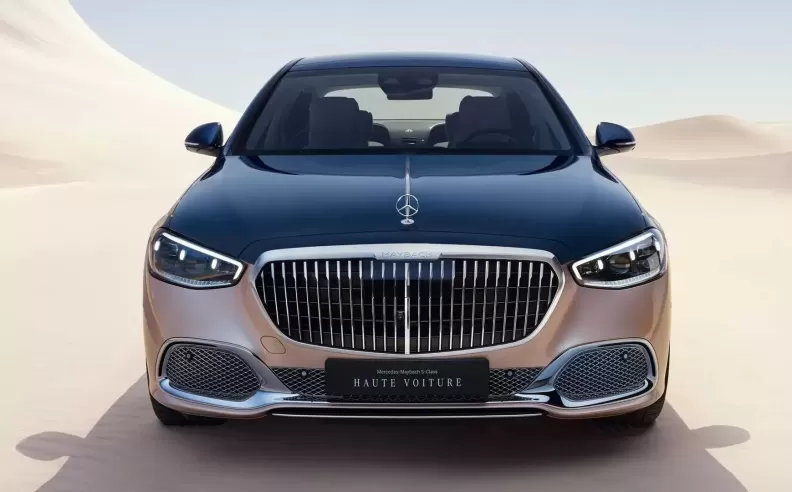
In a move that echoes industry trends, Mercedes-Benz is preparing to unify its flagship sedan lineup by replacing the EQS with an all-electric S-Class. Following BMW's dual approach with its 7 Series and i7, Mercedes will soon offer the next-generation S-Class in both internal combustion engine (ICE) and electric variants. This shift signals the end of the EQS after just one generation, although it will still receive a mid-cycle facelift before its retirement.
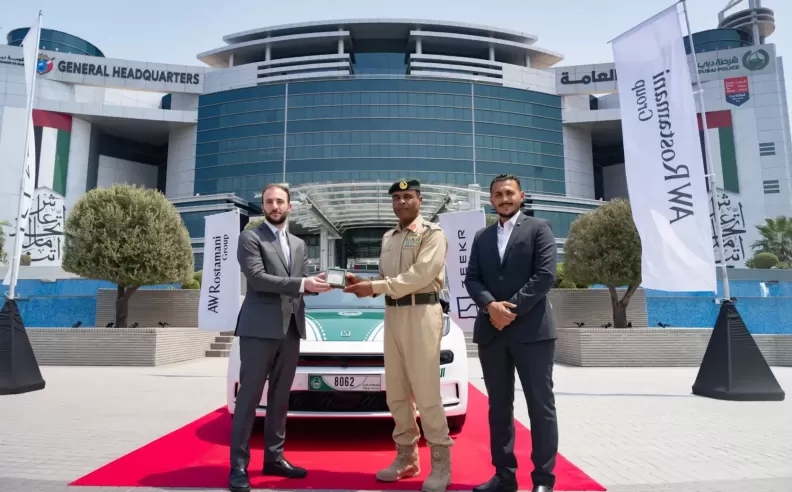
In a landmark move towards a safer and more sustainable future, AW Rostamani Group (AWR), one of the nation’s leading conglomerates and the official distributor of ZEEKR, has officially announced the addition of ZEEKR’s premium electric vehicles to Dubai Police’s elite fleet. This strategic partnership underscores Dubai’s commitment to innovation and environmental responsibility.
The official handover ceremony, held at the Dubai Police headquarters, witnessed the presence of Brigadier Juma Salem bin Suwaidan, Acting Director of the General Directorate of Traffic, Ahmed Shehab, Regional Director of Product and Strategy of ZEEKR MENA and Roberto Colucci, Director of ZEEKR at AW Rostamani Group, alongside senior management from AWR and ZEEKR.
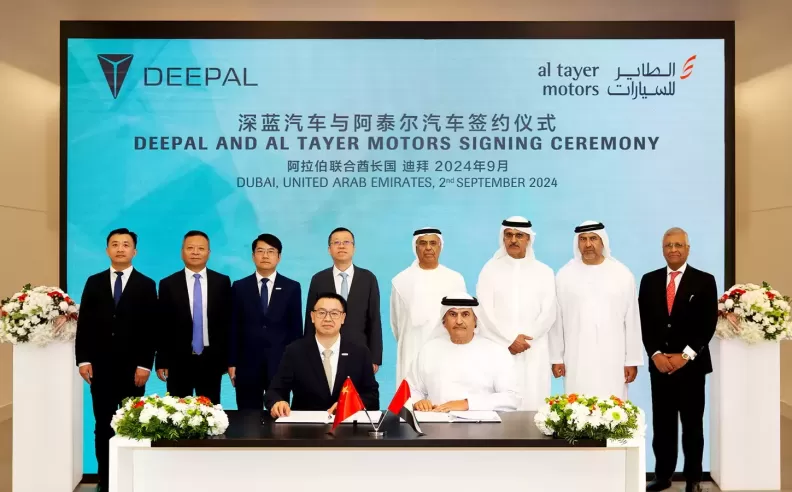
Al Tayer Motors, one of the UAE’s premier automotive dealerships, is the first in the Middle East to sign an agreement to distribute Electric Vehicle (EV) brand DEEPAL in the country.